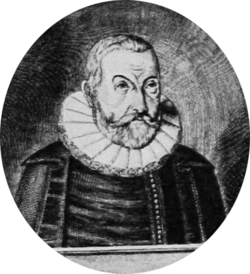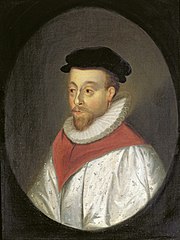The Lamb Music John Tavener (1944 - 2013), Words William Blake (1757-1827)
 |
| John Tavener from Wikipedia |
Tavener was born in Wembley, London. He was a music scholar at Highgate School, where a fellow scholar was John Rutter. The school choir was often used by the BBC when they needed a boys' choir. He began to compose whilst at school and was also a pianist good enough to perform with the National Youth Orchestra. In 1961 he was organist and choirmaster at St John's Presbyterian church, Kensington, a post he held for 13 years. He went to the Royal Academy of Music in 1962 where he decided to concentrate on composition and gave up the piano.
He came to prominence with his Cantata "The Whale" in 1968. In 1971 he began teaching at Trinity College of Music in London. In 1977 he converted to Russian Orthodox Church. Orthodox liturgy became a major influence on his composition.
"The Lamb" written in 1982 for his nephew's third birthday has become a choral classic. It was composed in a single afternoon for unaccompanied SATB choir, using William Blake's poem.
He was knighted in 2000 for his services to music. John Rutter describes Tavener as having the "very rare gift" of being able to "bring an audience to a deep silence."
William Blake was largely unrecognised during his life, he is now considered to be one of the seminal figures of poetry and art in the Romantic age. He was born in Soho and although his family were English Dissenters, he was baptised. The Bible was a profound influence on his work. In 1772 Blake was apprenticed to James Basire, an engraver, for 7 years. At the end of his term aged 21, he became a profession engraver. He had been taught an outmoded style and it is thought that this tuition held him back from greatness during his lifetime.
In 1779, Blake began as a student at the Royal Academy where he was somewhat rebellious against Joshua Reynolds.
In 1800, Blake moved to Felpham, illustrating poetry by William Hayley. He was unhappy in his work and returned to London after 3 years.
 |
William Blake
Wikipedia |
Blake was often considered "mad" by his contemporaries for his idiosyncratic views. The singularity of his work makes him difficult to classify.
"The Lamb" is from a collection of poems "Songs of Innocence". It was always intended to be sung, but Blake's melody is lost. It was set to music by Vaughn Williams in his song cycle "Ten Blake Songs" and later by Sir John Tavener.




